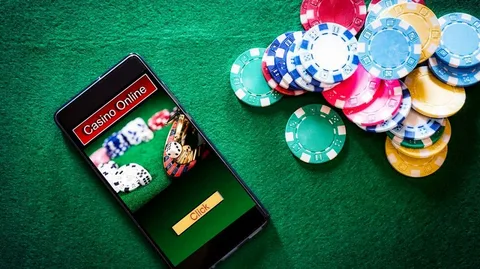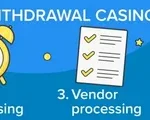For most, the journey into casino gaming begins casually – a bit of fun, a roll of the dice, the fleeting hope of a big win. It’s about entertainment, thrill, and the simple joy of trying your luck. But for a growing number of players, that casual interest evolves into a desire to play smarter, to minimize losses, and even, where mathematically possible, to secure consistent long-term advantages. This is the transition from a casual gambler to a competitive casino player.
Building serious casino game skills isn’t about finding secret cheats download mr beast casino app or manipulating random outcomes. It’s about a profound shift in mindset, coupled with the disciplined development of crucial analytical, strategic, and psychological abilities.
The Casual Player: Driven by Luck and Lure
The typical casual player often operates on instinct and immediate gratification.
- Mindset: Primarily seeking entertainment, a rush, or an escape. Winning is a bonus, but the focus is often on chasing big jackpots or recouping immediate losses.
- Focus: Luck, the “hot” machine, popular games, chasing perceived streaks.
- Skills (often lacking): Formal bankroll management, understanding of house edge, game-specific strategies beyond basic rules.
- Typical Games: High-volatility slots, American Roulette, “Any 7” bets in Craps – games with high house edges but flashy payouts.
The Transition: Becoming an Informed Recreational Player
The first step towards competitive play is realizing that knowledge and discipline significantly impact your experience.
- Mindset Shift: Recognizing that gambling involves probabilities and that smart decisions can reduce the inherent disadvantages. The goal shifts from “winning big” to “playing smarter” and “losing less.”
- Key Skill Development:
- Basic Bankroll Management: This is the absolute first and most critical skill. Setting a strict budget for each session, defining clear loss limits, and sticking to them religiously. It’s about safeguarding your finances.
- House Edge / Return to Player (RTP) Awareness: Understanding that different games (and different bets within games) offer varying statistical returns.
- Action: Choosing European Roulette (2.7% House Edge) over American Roulette (5.26% House Edge). Actively seeking out online slots with published RTPs of 96% or higher.
- Fundamental Game Rules & Payouts: Moving beyond just the basics to truly understand how bets are paid and how specific game mechanics work.
- Utilizing Free Play/Demo Modes: Using these risk-free environments to learn, test, and understand game mechanics without financial pressure.
- Typical Games: Still enjoying slots and roulette, but now selectively choosing better versions. Beginning to explore Blackjack with a basic strategy chart in hand.
Becoming Competitive: The Strategic Player
This stage marks a significant commitment to treating casino play as a strategic endeavor. The focus shifts to long-term expected value (EV) and consistent application of optimal strategies.
- Mindset Shift: Gambling becomes a challenge to overcome mathematical disadvantages where possible, or to manage risk with precision. Emotions are increasingly detached from individual outcomes.
- Advanced Skill Development:
- Advanced Bankroll Management: Implementing sophisticated strategies like unit betting (e.g., 1% of bankroll per wager), calculating “risk of ruin,” and disciplined profit-taking strategies (e.g., immediately withdrawing 50% of significant wins). Tracking all wins and losses.
- Probability & Odds Calculation: Understanding concepts like pot odds (in poker), implied odds, and the exact probabilities of specific outcomes (e.g., rolling a 7 in Craps, hitting a draw in poker).
- Flawless Basic Strategy Execution: For games like Blackjack and Video Poker, basic strategy becomes instinctive, executed perfectly every time, reducing the house edge to its absolute minimum.
- Expected Value (EV) Analysis: Applying EV calculations to evaluate complex decisions, such as whether a casino bonus is truly profitable after factoring in wagering requirements and game house edge.
- Volatility Management: Actively choosing games with volatility that aligns with their bankroll and risk appetite. Understanding that high-volatility games require larger bankrolls to weather inevitable dry spells.
- Emotional Discipline: The unwavering ability to stick to strategy regardless of short-term losses or wins, avoiding tilt, and maintaining composure under pressure.
- Game Specialization: Often focusing deeply on one or two games (e.g., Blackjack, Video Poker, Poker) where skill has the most profound impact, rather than dabbling across many.
- Typical Games: Blackjack (mastery), Video Poker (optimal strategy for specific machines), Craps (exclusively Pass/Come and Odds bets), strategically clearing casino bonuses.
The Professional Edge: Beyond Strategy
For the truly elite, competitive play becomes an almost scientific pursuit, seeking every possible nuanced advantage.
- Mindset Shift: Casino play is treated as a business. Continuous self-analysis, meticulous record-keeping, and constant adaptation are paramount.
- Refined Skills:
- Opponent Reading (Live & Online): Mastering psychological tells, betting patterns, and timing tells. Building comprehensive profiles of opponents to exploit their weaknesses in player-vs-player games like poker.
- Adaptive Strategies: Fluidly adjusting play based on specific opponent types, table dynamics, and subtle rule variations in live dealer games.
- Leveraging Technology & Data: Utilizing poker tracking software, analytical tools for game selection, and critically evaluating AI-driven casino offers to find genuine value.
- Continuous Learning & Review: Analyzing every session, studying advanced game theory, staying updated on the latest strategies, and dissecting one’s own “leaks” (areas of weakness).
- Strict Personal Protocols: Beyond financial limits, this includes physical preparedness, mental focus routines, and self-care to ensure peak performance.
- Typical Games: High-level Poker, niche advantage play techniques (where feasible and legal, e.g., expert card counting in specific live Blackjack conditions), sophisticated cross-casino bonus hunting.
The journey from a casual player to a competitive one is marked by dedication, relentless learning, and ironclad discipline. It’s about transforming a game of chance into a calculated challenge where understanding, strategy, and self-mastery are your most valuable assets. The rewards aren’t just monetary; they include the profound satisfaction of truly mastering a complex domain.








